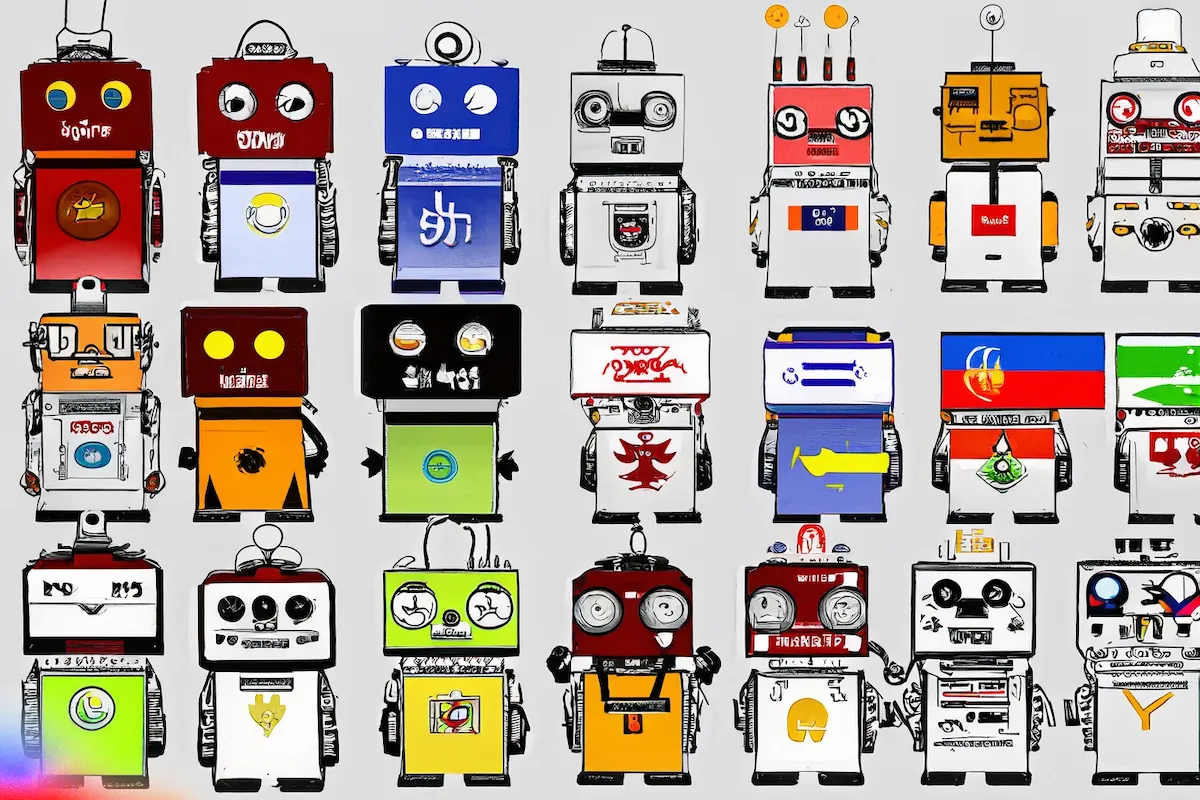Large language or image models are being experimented with by several businesses. They have typically found them remarkable in terms of their capacity to articulately communicate difficult thoughts. At the same time, the majority of users are aware that these systems are largely trained on internet-based information and are unable to reply to queries or prompts regarding some domain-specific business use cases.
So, here‘s the thing: Generative AI models need to be trained using case-specific training data to get results.
Fine-Tuning and Prompt Tuning are the two methods businesses can use to train an existing AI model to get the desired results. Google, for example, used fine-tuned training on its Med-PaLM2 model for medical knowledge. The research project started with Google’s general PaLM2 LLM and retrained it on carefully curated medical knowledge from a variety of public medical datasets. The model was able to answer 85% of U.S. medical licensing exam questions, almost 20% better than the first version of the system.
Even though they have fine-tuned Med-PaLM2, it is still not good for criteria like precision, bais, etc. These issues can only be solved with the help of very specific custom training datasets.
In this blog, we will briefly discuss fine-tuning and custom training datasets in detail.
What is Fine-Tuning?
Fine-tuning is a machine learning technique used to adapt a pre-trained model to a specific task or domain by further training it on task-specific data. In the context of language models, fine-tuning involves taking a pre-trained model that has already been learned from a large corpus of text and updating its parameters with additional training on a smaller dataset that is specific to the target task.
 Fine-Tunning involves many steps to get desired results like Data preparation, Model Initialization, Hyperparameter tuning, Evaluation, Iteration, etc. The adjustments in parameters and requirements of the training data vary with the use cases.
Fine-Tunning involves many steps to get desired results like Data preparation, Model Initialization, Hyperparameter tuning, Evaluation, Iteration, etc. The adjustments in parameters and requirements of the training data vary with the use cases.
Many businesses don’t have training data to train their models, and many are developing models for edge use cases that need very specific data. In real life, there are many constraints, like the availability of data, data privacy, and ownership of the data, that make it difficult for businesses to train their models. In most cases, businesses rely on data partners to solve their custom training data needs. Look what our customers are saying about the custom data we provided to them.
We wanted to express our gratitude for the data you provided. Thus far, we have utilized it without encountering any issues or receiving any complaints. It adequately serves our specific use case, enabling us to carry out our tasks effectively. We genuinely appreciate your collaboration and the efforts you put into this. Should we have any additional requirements in the future, we will not hesitate to reach out to you. Once again, thank you.
What is Custom Training Data for Fine-Tuning?
Custom training data refers to a dataset specifically prepared and used to fine-tune a pre-trained model for a particular task, domain, or use case. This data is curated and labeled with inputs and corresponding outputs relevant to the target task. Custom training data serves as the foundation for training the pre-trained AI model to adapt and specialize its knowledge to perform better on the specific task.
In simple words, custom data serves the purpose of training your model to understand your proprietary task.
Let’s discuss the characteristics of custom training data.
Task Relevance
The degree of congruence between the training data and the particular task or problem that you want the improved model to excel at is referred to as task relevance. It represents how well the patterns, ideas, and variations pertinent to the goal task are captured in the training data.
When the training data is task-relevant, it covers the inputs and outputs that the fine-tuned model will encounter during inference. This ensures that the model learns from examples that are directly related to the task at hand, enabling it to generalize well and make accurate predictions or generate appropriate outputs.
For example, suppose you want to fine-tune a pre-trained language model to perform sentiment analysis on movie reviews. In this case, task relevance would involve training the model on a text dataset of movie reviews where each review is labeled with its corresponding sentiment, positive, negative, or neutral. The training data would consist of various movie review examples with their associated sentiment labels.
In this case, the task relevance will be high because the training data reflects the specific task of sentiment analysis on movie reviews. The model learns from inputs (movie reviews) and their corresponding outputs (sentiment labels) that are directly relevant to the sentiment analysis task. As a result, the fine-tuned model is expected to better understand the language patterns and sentiment indicators in movie reviews, leading to improved performance when predicting the sentiment of new, unseen reviews.
Data Diversity
Data diversity refers to the inclusion of a wide variety of examples in the training data used for fine-tuning a model. It involves incorporating different types of inputs, variations, and edge cases that the model may encounter in real-world scenarios.
Let’s understand this with an example,
One of our clients is developing a voice-based conversational AI model specific to the Banking industry in Hindi. They want their model to understand bank services like account opening, home loans, etc. In this particular case, in real life, there are many different speakers, different age groups, accents, genders, etc. To help the model understand bank services in different scenarios, we help them collect speech training data from various speakers, from different age groups, and from different places in India. We also collect data on topics like account openings in different styles with all possible banking terminology to make it diverse.
So, what we understand from this is that data diversity is very important in custom training data; otherwise, the model may not perform the specific task in all cases; it may solve the issue for a particular accent but not for the other one that is not involved in training data.
Bias Consideration
It's important to be mindful of potential biases in the custom training data. Biased data can result in biased or unfair predictions from the fine-tuned model. Care should be taken to identify and mitigate any biases during the data collection and preprocessing stages to ensure fairness and avoid perpetuating harmful biases.
As I said in the previous example, we collected speech data from multiple age groups and genders; what if we had not included male voices in the dataset? The model may not perform the task when hearing a male voice.
Data Bias is a very big issue and can be avoided if we take care of it while preparing the training data.
Data Privacy and Security
Consider any privacy or security concerns associated with the custom training data. Ensure that any sensitive or personally identifiable information is properly anonymized or protected to adhere to privacy regulations and ethical guidelines.
Training data should have proper consent from the contributors, and it should include how this training data is going to be used. While using the training data, we should make sure that we are properly anonymizing personal information like the user's name, credit details, etc.
All these characteristics should be considered while preparing training datasets. Data without task relevance and diversity will not fulfill the use case. Bias should be taken care of while collecting training data and in the evaluation process. By collecting training ethically and with a proper security system, privacy and security issues can be solved.
Fine-Tune Data Partner
With a proper system, platform, and AI community, FutureBeeAI, a leading Data provider, understands the value of custom training data and its characteristics. Our expertise in understanding the characteristics of effective custom training data ensures that businesses and researchers can access diverse and reliable datasets to enhance the performance and specialization of their AI models.
Fine-tune your AI model with Better Custom Training Data from us!







